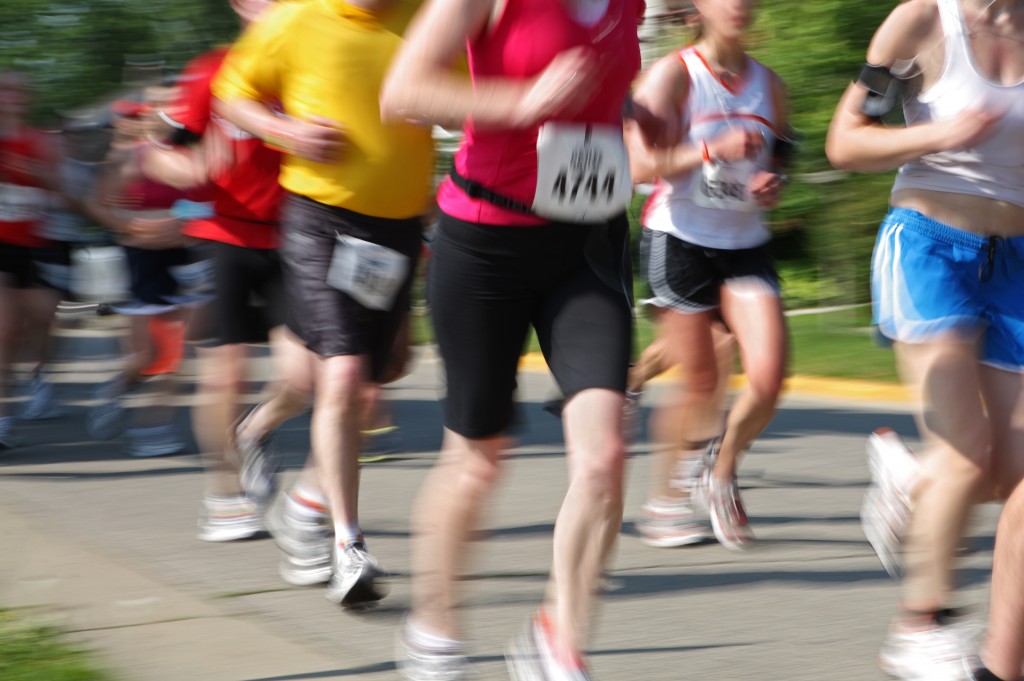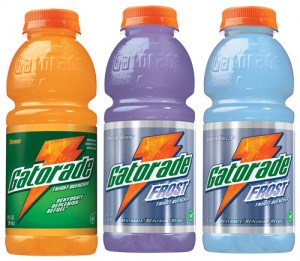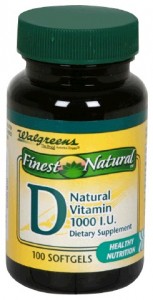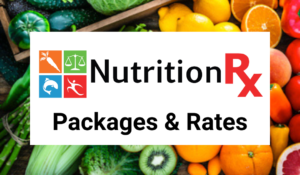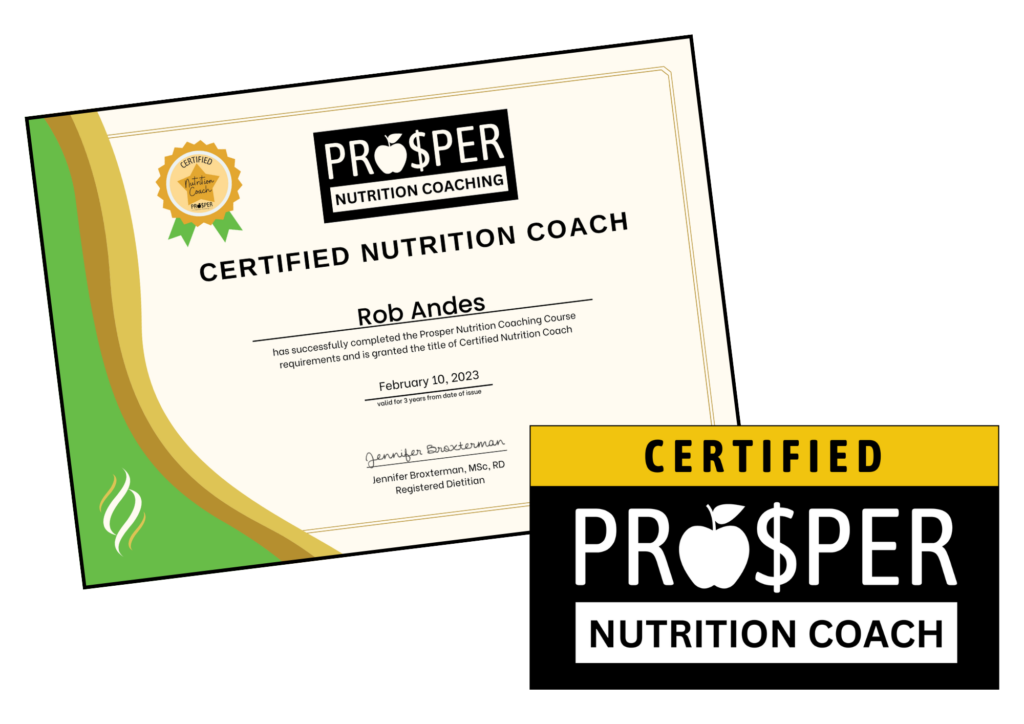

Sport Supplements for Marathon Runners
Written By: Jennifer Broxterman, MSc, Registered Dietitian & Sports Nutritionist
and Ivan Ho, BScH Foods & Nutrition Student
NutritionRx | www.nutritionrx.ca
Offering professional nutrition counselling services in London, Ontario.
Email: info@nutritionrx.ca
Running a marathon is definitely not an easy endeavor. A full marathon lasts 42 km, which is roughly equivalent to running the length of a football field 380 times. The average time it takes most runners to complete a marathon is over 4 hours, with many participants not being able to finish the race due to injuries and fatigue. Although the task seems daunting, completing a marathon is an accomplishment that most people can achieve with hard work, appropriate training, good nutrition, proper rest / recovery / mobility work, and in certain situations, the use of sports supplements to help improve performance.
Without question, a healthy diet and adequate rest combined with physical exercise are the foundations to good physical health and increased fitness. However, with a demanding endurance sport such as long distance running, it may be appropriate to consider ergogenic aids (aka “sports supplements”) that will keep the body performing at its best and to alleviate any long-term problems from prolonged physical stress on the body.
Below is a list of three important supplements for marathon runners:
1. FISH OILS: The longer a person puts their body under physical stress, the greater the inflammation, which may lead to problems such as sore joints and muscles. Omega 3 fatty acids benefit the body by reducing inflammation and oxidative stress, helping to improve blood flow and enhance recovery. There are many natural food sources of omega 3 fatty acids, such as:
- fatty fish (e.g. salmon, mackerel, trout, tuna, and anchovies)
- nuts and seeds (especially walnuts)
- flax and chia seeds
- edamame (soy beans)
- oils such as canola, soybean, and flaxseed
- omega-3 enriched eggs (achieved by feeding the chicken a high flaxseed diet)
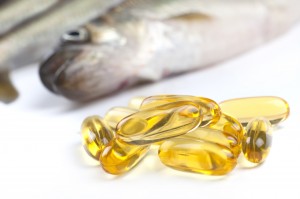
A diet rich in these foods is able to offer adequate omega 3s to cover the stress of training; however, many people do not eat enough of these omega 3 powerhouse foods on a regular basis and end up falling short. Consuming a small daily dose of fish oil rich in EPA and DHA – potent forms of omega 3 – will help ensure that the body receives enough omega 3 fatty acids to help improve circulation, reduce inflammation, and promote recovery. Double check that your brand is free from contaminants such as mercury and PCBs and is also potent (i.e. the amount of omega 3s contained in the product matches what is advertised on the label) by visiting The International Fish Oils Standards Program, an independent third-party testing program located in Guelph, Ontario. All of their fish oil testing results are published online for free to ensure public safety.
2. SPORTS DRINKS: Sweating is a natural phenomenon that allows your body to stay cool and maintain an appropriate internal temperature. When you sweat, you are constantly losing fluid and electrolytes, and if left unattended, can cause dizziness, fatigue, headaches, and an increased heart rate. Sports drinks have been shown to improve performance and decrease time to fatigue in endurance events (and training sessions) that last longer than one hour. An appropriate sports drink should provide adequate carbohydrate (4-8% carbs for volume), fluids, and electrolytes (especially sodium and potassium) that will help with the fluid balance in your body during and after a long distance event. To make your own homemade sports drink, try this low-cost recipe that matches the composition and concentration of regular strength Gatorade: Homemade Sports Drink
3. VITAMIN D: Vitamin D is often called the “sunshine vitamin” because your body can synthesize it from sunlight. Getting enough vitamin D has been shown to help reduce the risk of stress factors and also helps to regulate the immune system and inflammatory response. This is particularly important in endurance sports that can cause prolonged stress on the joints and bones. Vitamin D is also involved in the absorption of calcium, which is essential for maintaining the health of your bones and for muscle endurance. Vitamin D is found in only a few select foods, including fatty fish such as salmon, milk, and egg yolks. If you get sun exposure in the summer during your runs, your body is likely making more than enough vitamin D. However between October to April, during the long dark winter months, most Canadians become vitamin D deficient, and I highly recommend my clients take a daily 400-1000 IU vitamin D pill with a meal containing fat to help with absorption.
As with all supplements, it is best to be on the safe side and consult a health professional, such as a physician, pharmacist, or registered dietitian before consumption. Remember that a “foods first” approach is always the best option for active individuals – try your best to fuel your body by eating a variety of healthy foods, and rely on sports supplements to enhance the quality of your diet only when needed.
Remember, with great distance comes great responsibility for taking care of yourself! Wishing you a happy and healthy running season.
Wishing you health & happiness,
♡ Jen
Jennifer Broxterman, MSc, RD
Registered Dietitian
NutritionRx: happy, healthy living with our team of Registered Dietitians
Prosper Nutrition Coaching: a world-class nutrition coaching certification
+
+
+
Want to work with a NutritionRx Registered Dietitian?
Learn more here: Nutrition Packages & Rates
+
+
+
Want to become a Certified Nutrition Coach?
Learn more about our habits-based Prosper Nutrition Certification

